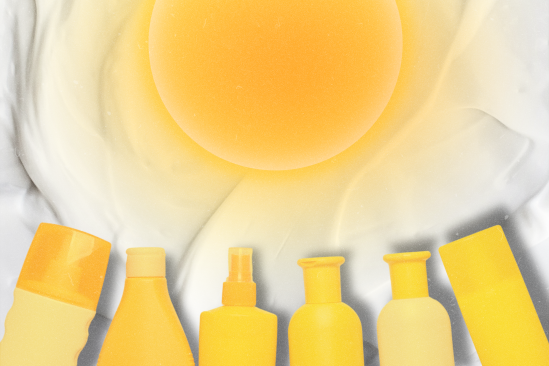
Here's what dermatologists say.
Dermatologists recommend that people wear SPF on any exposed skin any time they go outside, 365 days a year. But let’s be honest: many of us stock up on SPF around Memorial Day, then forget about it once Labor Day passes. Only about 13% of U.S. adults actually wear sunscreen every single day, survey data show.
Is it really so bad to wear sunscreen only when it’s hot and sunny outside? It’s understandable, says Dr. Abel Torres, chair of the University of Florida College of Medicine’s dermatology department—but that doesn’t mean it’s the best choice.
[time-brightcove not-tgx=”true”]“When it’s hot, it becomes obvious that you need sunscreen because you feel warm and you feel that sun burning against your skin,” Torres says. But “heat is not the same thing as ultraviolet light radiation,” which is what causes skin damage.
The sun’s UVA rays contribute to visible skin aging, like wrinkles and sagging, while UVB rays cause sunburns. Both contribute to the formation of skin cancer. These rays are still present when it’s cold or overcast, which makes sunscreen important all year round—not just during beach season. “Skiers know that you can get a sunburn even though you’re out on the slopes,” says Dr. Brandon Adler, a clinical assistant professor of dermatology at the University of Southern California’s Keck School of Medicine.
Read More: Scientists Are Finding Out Just How Toxic Your Stuff Is
In other words, it’s a mistake to think that you don’t need sunscreen just because it’s not a blazing hot day. But there are some good reasons to wear more of it when it’s hot outside.
One reason: you’re likely to sweat more when it’s warm, which means sunscreen may wear off faster, Adler says. Most people show more exposed skin in the warm months, too.
And, although studies on the topic have reached different conclusions, there is some evidence that the active ingredients in sunscreens can degrade in heat. The U.S. Food and Drug Administration recommends keeping sunscreen containers out of direct sunlight and storing them in a cooler on especially hot days. It’s not entirely clear whether the same degradation can occur when the product is on your skin, so it shouldn’t be a huge concern, Adler says. But it’s not a bad idea to apply liberally when it’s hot outside, just in case.
Pay attention to the time of day, too. Although heat does not perfectly correlate with UV radiation, the sun does tend to be strongest during the hottest parts of the day—usually from late morning to mid-afternoon, Torres says. Between the hours of roughly 10 a.m. and 4 p.m., he says, the sun’s rays are “much more direct and you’re getting a lot more exposure,” so you should be extra careful about thoroughly applying SPF if you’re outside during that stretch of time.